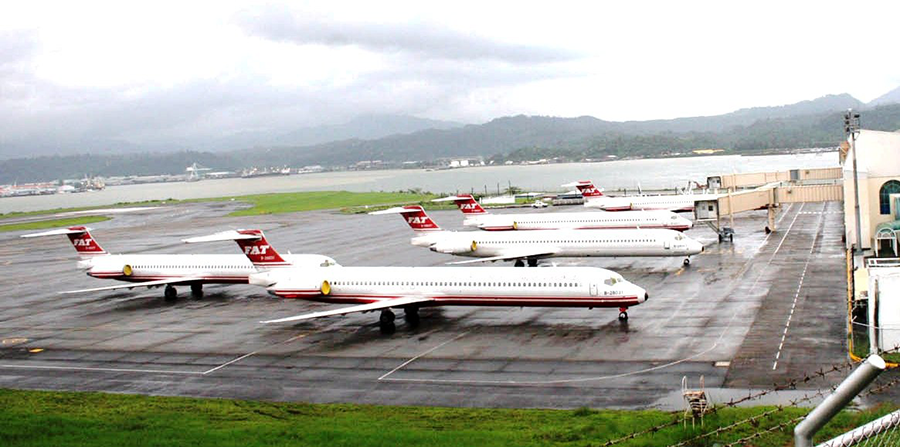
SUBIC BAY FREEPORT – The Subic Bay International Airport (SBIA) is gearing up with a multi-million rehabilitation program to recapture its lost glory as a major port for international commercial flights.
Subic Bay Metropolitan Authority (SBMA) Chairman and Administrator Wilma T. Eisma said the government is set to pour P502 million for various landing instruments and communications systems, with funds from the Procurement Service of the Department of Budget and Management (DBM-PS).
The DBM-PS will also bid out the component projects that will include procurement of Air-Ground VHF radio communication system, Area Navigation (RNAV) design, Doppler Very High Frequency Omni Directional Range (DVOR) for homing aircraft, Airfield Ground Lightings (AGL), Movement Area Ground Signages (MAGS), Airport Rescue & Fire Fighting (ARFF) vehicles, Air Passenger Boarding Bridges (APBB), and Automatic Dependent Surveillance-Broadcast (ADS-B).
Eisma added that some P232-million worth of equipment will also be needed for the airport. These include X-ray machines, closed circuit television (CCTV), ambulance, sweeper truck, Flight Information Display System (FIDS), Fire Detection and Alarm System (FDAS), aerial platform, and pickup trucks and passenger vans.
The SBMA started refurbishing the SBIA with a new P51-million Automated Weather Observation System (AWOS), which provides continuous, real-time information on weather conditions. The AWOS is not covered by the P502-million funding, Eisma said.
“The AWOS is already installed and operational, which is why Subic is now ready to accommodate planes because its communications and night-time capability are fully functioning. In fact, Subic recently took in flights from Bangkok that were diverted from Clark Airport,” she said.
She added that SBMA is also arranging for other commercial operations at the Subic airport, including maintenance repairs for Gulf Stream, flying school for the Philippine Airlines, Subic-Macau-Subic flights for Royal Air, as well as for China Eastern Airlines.
According to SBIA manager Zharrex Santos, the Subic airfield can accommodate almost all types of modern aircraft at more than 20 movements per hour because of its 2,744-meter runway with effective width of 45 meters. It also has ramps and aprons that could take in 24 wide-body aircraft for parking at one given time.
Meanwhile, the two tubes at the SBIA terminal building can process 700 passengers per hour, Santos said.
Recently, Senator Richard Gordon called for the immediate upgrading and operation of the Subic airport after a runway mishap caused hundreds of flight cancellations at the Ninoy Aquino International Airport (NAIA).
Gordon said the national government has already appropriated P553 million from the 2017 General Appropriations Act for the restoration of facilities and procurement of instruments at the SBIA.
The Subic airport, which was built in 1951 as the U.S. Navy’s Naval Air Station Cubi Point, was converted into a commercial airport under the SBMA and became the Asia One hub of Federal Express until 2009.
Subic proved its capability as a major diversion airport in December 1995 during another problem at the NAIA when it served 1,674 passengers from international liners and 212 passengers from local airlines and in August 2007 when it sheltered 37 various aircraft, 19 of which were passenger planes from Taiwan, because of Typhoon “Sepat.”. (Dante M. Salvana)




